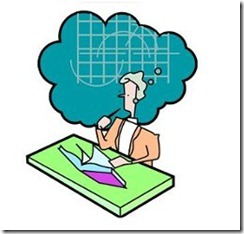Understanding who holds the inside knowledge about the organization’s bookkeeping systems and how to extract and capture that knowledge is one of the biggest challenges we run into with our accounting clients. Best practice dictates that you develop accounting systems that remain autonomous of  individual bookkeepers, managers, and even business owners, but inevitably there is one trusted employee who understands the accounting codes or holds vital financial information. If that individual calls in sick or leaves the company, the entire accounting system can be thrown into disarray or may have to be reconstructed.
individual bookkeepers, managers, and even business owners, but inevitably there is one trusted employee who understands the accounting codes or holds vital financial information. If that individual calls in sick or leaves the company, the entire accounting system can be thrown into disarray or may have to be reconstructed.
To eliminate this problem, consider your accounting systems as part of your company’s intellectual property (IP). By definition, IP is non-physical property, but like all property, it can be transferred. By establishing accounting policies and procedures, the accounting systems become part of the corporate IP and operate independently of individual staff members.
There are at least three reasons that accounting systems have greater value when treated as IP:
1. Consistent and clean bookkeeping. By documenting accounting processes in such a way that they become part of the operational fabric of the organization, you eliminate the guesswork and remove the possibility that critical aspects of the process remain with individuals. Document everything. Make sure that secure information and materials, such as company checks, are tightly controlled with checks and balances to ensure proper accounting procedures are followed and potential fraud is minimized.
2. Employee training. By documenting accounting processes, you can transfer the IP to new employees. Training can be standardized, ensuring that all employees are instructed to follow the same set of protocols and procedures.
3. Sale of the company. Documenting accounting processes as company IP makes the processes and procedures part of the company’s assets. Established, consistent accounting procedures make auditing much easier. Good accounting procedures also provide precise, factual, objective information about operations, making it easier to inventory assets and value the company.
We insist that all of our clients standardize and document their accounting procedures. It’s the only way to ensure proper and consistent bookkeeping, and once those procedures are documented, they can be institutionalized and become part of the company’s assets. Considering your accounting processes IP from the outset of an entity makes the process easier.

